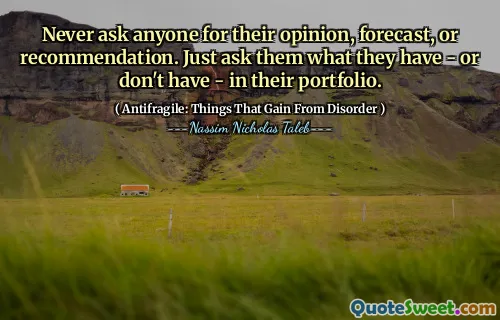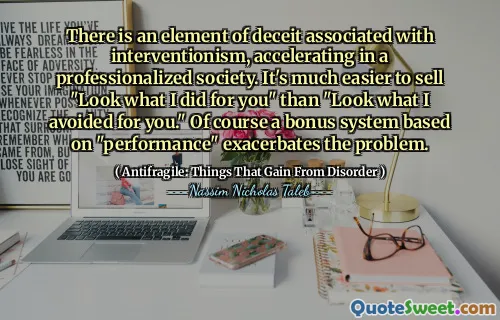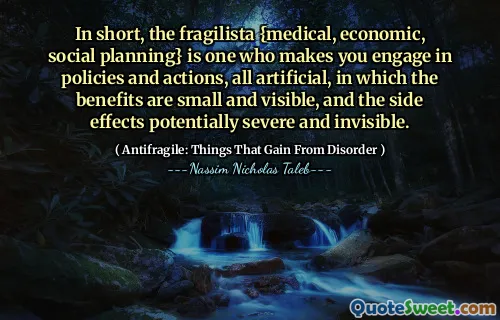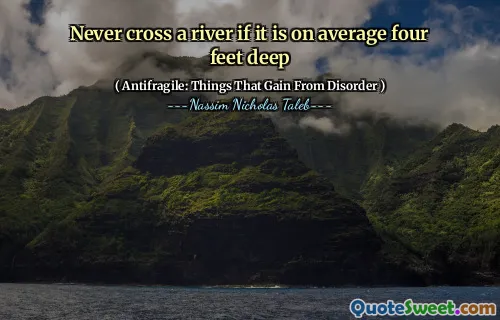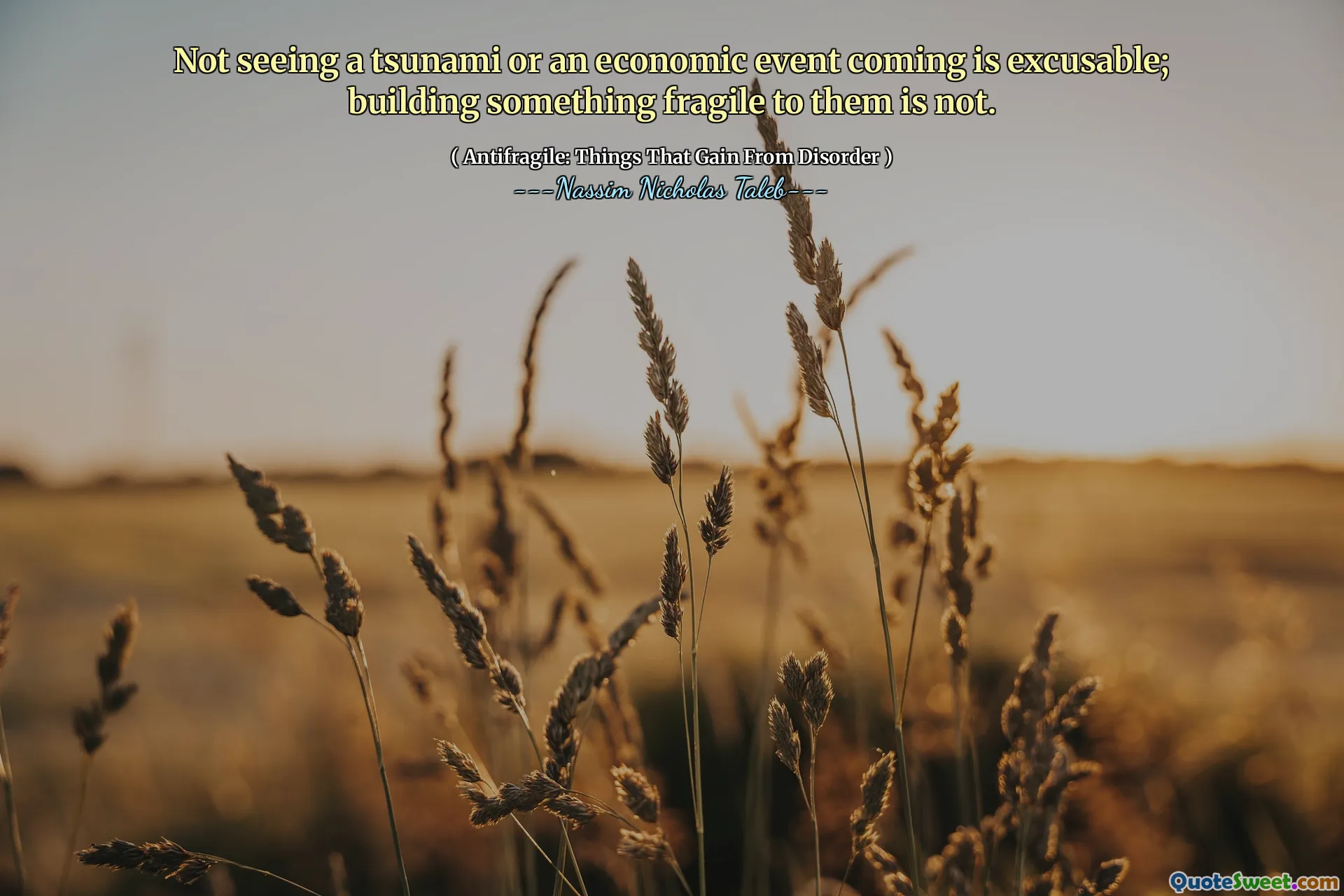
Not seeing a tsunami or an economic event coming is excusable; building something fragile to them is not.
This quote underscores the importance of resilience and understanding in the face of inevitable chaos and unpredictable events. In our complex world, phenomena such as natural disasters and economic upheavals are not surprises to those who pay attention; rather, they are inherent risks that we must acknowledge. The key message is that while it might be understandable to overlook specific threats, it is irresponsible to design or build systems that are inherently fragile—those that break or fail catastrophically under strain or stress. Instead, the emphasis should be on creating structures—whether financial, personal, or infrastructural—that can adapt, withstand, or even benefit from disorder.
This perspective aligns with the core ideas presented in ’Antifragile’ by Nassim Nicholas Taleb, where robustness is not enough—one must aim for antifragility. Fragile systems tend to deteriorate when exposed to volatility; in contrast, antifragile systems improve, learn, and evolve under stress. Building such systems requires humility and foresight, understanding that uncertainty and shocks are unavoidable. Ignoring this truth leads to complacency and catastrophic failures, while embracing the reality of volatility allows for innovation and strength.
In practical terms, this means designing financial strategies that are resilient to market crashes, encouraging personal habits that adapt to life’s uncertainties, and developing infrastructure that can handle environmental extremes. Recognizing and respecting the power of chaos is crucial; it prevents complacency and promotes a mindset tuned to resilience and growth amidst unpredictability. Acknowledging the inevitability of disruptive events without being caught off guard is both a sign of wisdom and a foundation for sustainable success.
